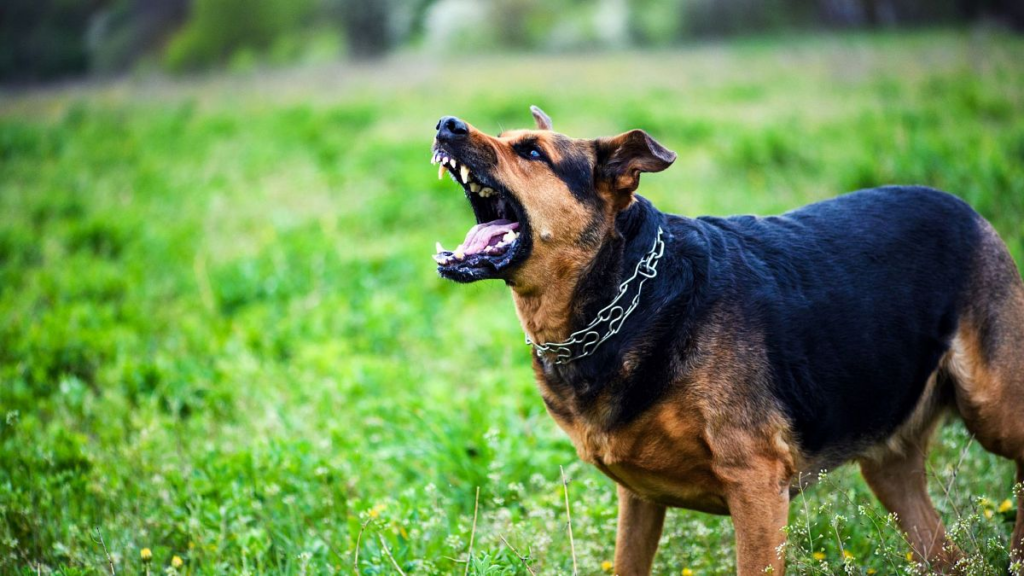Dog attacks could become more common on hot and polluted days, troubling new research has warned.
Climate change could make dog bites more common, new research has warned.
Dogs are 11 per cent more likely to attack people on days with higher UV levels, according to Harvard Medical School research.
Previous studies have linked high temperatures and air pollution to increased aggression in humans, rats, and monkeys.
Now, it appears warming weather could turn ‘man’s best friend’ against us.
“Dogs, or the interactions between humans and dogs, are more hostile on hot, sunny, and smoggy days,” the study authors conclude.
“The societal burden of extreme heat and air pollution also includes the costs of animal aggression.”
The study – published in the Nature journal this month – examined data on dog bites in eight US cities between 2009 and 2018. The dataset included 69,525 reported dog bites, an average of three bites per day over ten years.
They found dog bites increased by 11 per cent on days with higher UV levels, 4 per cent on hotter days, and 3 per cent on days with increased ozone levels.
Dog bites slightly decreased (by 1 per cent) on days with high rainfall.
The study did not include information about other factors – like dog breed, sex, or whether the dog had been neutered or spayed.
However, the researchers speculated that hot weather makes dogs more aggressive, just like it does their owners.
If you’ve ever felt your blood boiling as the mercury climbs, you’re not alone.
High temperatures can increase heart rate, blood pressure, sweating and make it harder to catch your breath, contributing to heightened feelings of stress. Heatwaves can also cause testosterone production to surge, increasing feelings of aggression.
According to an American study spanning 45 years, violent attacks increase in warm years and seasons. Non-violent crimes were unaffected by temperature.
The seasonal aggression trickles down into all parts of society.
In hot weather, journalists are more prone to using negative language in their reporting, and people are more likely to quit their jobs.
As climate change bites, the globe is heating up.
Human-induced warming reached approximately 1°C in 2017. We are on track for 1.5 degrees in 2024.
The UN has warned that existing climate pledges provide ‘no credible pathway’ to preventing temperature rises above 1.5 degrees on pre-industrial levels.
At 1.5 degrees Celsius warming, about 14 percent of Earth’s population will be exposed to severe heatwaves at least once every five years, while at 2 degrees warming that number jumps to 37 per cent.

